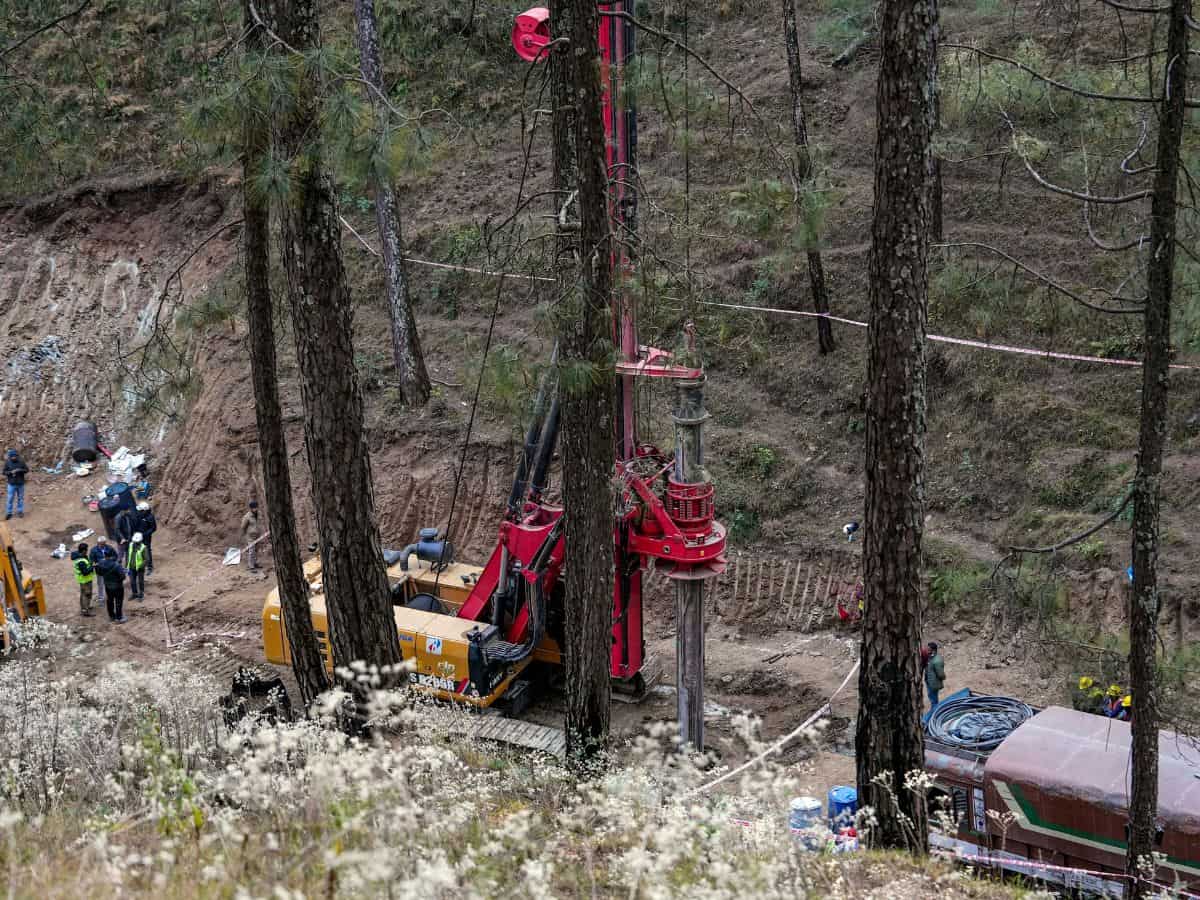
New Delhi: The National Disaster Management Authority on Sunday said that work is on to retrieve broken parts of the auger machine and start manual digging while vertical drilling has also started to bring out 41 workers trapped in Silkyara tunnel in Uttarkashi for the last 14 days.
National Disaster Management Authority (NDMA) Member Lt Gen (retd) Syed Ata Hasnain told reporters here that all efforts are going on to rescue the workers.
Considered as the second best option, the work on vertical drilling started around noon and 15 metres of drilling has already been completed, Hasnain said.
He added that after 86 metres of vertical drilling, the crust of the tunnel will have to be broken to bring out the trapped workers.
The member also mentioned that as many as six plans are being executed to rescue the workers but the best option so far is horizontal drilling under which 47 metres of drilling have been completed.
“Six plans are being adopted in a synchronised manner. The operation wasn’t put on halt and is still underway in terms of repair work,” he said.
Machines for undertaking sideways drilling (perpendicular drilling) are expected to reach the rescue site during the night, Hasnain said.
Meanwhile, work is on to retrieve broken parts of the auger machine which encountered obstacles during the horizontal drilling, the NDMA member said, adding magna and plasma cutters are being used for the purpose.
“The broken part of auger machine, which was stuck in the 47-metre long segment, has been retrieved up to 34 metres and approximately 13 metres are still remaining. We hope that it will be brought out by tonight,” Hasnain said.
A plasma cutter was flown in from Hyderabad on Sunday to cut and remove parts of the auger machine stuck in the rubble inside the Silkyara tunnel.
“Once the broken parts are retrieved, manual digging of 15 metres will be done to reach out to the trapped workers though it may take time.
“…earlier, we were getting a speed of 4-5 metre/hour but now that might not be the case but it is a fail-safe technique,” Hasnain noted.
A complete disengagement of the machine is necessary for the officials to resume the rescue work which involves manual pushing of pipes through rubble to prepare an escape passage.
A part of a drill machine has also been sent atop the hill, above the tunnel, for vertical drilling.
A unit of Madras Sappers, an engineer group of the Corps of Engineers of the Indian Army, arrived at the site on Sunday to assist in the rescue operations.
Blades of the auger machine drilling through the rubble of the collapsed Silkyara tunnel to prepare an escape route got stuck in the debris on Friday night, forcing officials to consider switching to other options that could drag the rescue operation by several days, or even weeks.
On day 14 of the multi-agency rescue mission, officials shifted focus to two alternatives — manual drilling through the remaining 10- or 12-metre stretch of the rubble or, more likely, drilling down 86 metres from above.
The rescue effort began November 12 when a portion of the under-construction tunnel on Uttarakhand’s Char Dham route collapsed following a landslide, cutting off the exit for the workers inside.
The workers are in a built-up two-kilometre stretch of the tunnel. They are being sent food, medicines and other essentials through the six-inch wide pipe.
